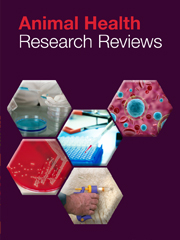No CrossRef data available.
Article contents
The role of the veterinary diagnostic lab in the management of BRD
Published online by Cambridge University Press: 09 December 2020
Abstract
Veterinary diagnostic labs (VDLs) are important service agencies providing essential diagnostic testing for a wide variety of domestic animal species as well as wildlife. They serve key roles in disease monitoring and diagnosis as well as surveillance for diseases of consequence. Of the many roles VDLs serve, one is being a member of the larger team of professionals dealing with the management of the bovine respiratory disease (BRD) complex. VDLs provide a number of services related to the management of BRD. These include disease outbreak investigation, abnormal morbidity characterization, routine monitoring, and biosecurity screening for a variety of infectious agents via methods such as necropsy and histopathology, bacterial culture, antimicrobial sensitivity testing, virus isolation, and serological assays. VDLs continue to look for better methods and assays as instrumentation technology also grows and improves. This is reflected in the growing proliferation of molecular-based assays that provide a high degree of sensitivity and specificity. Professional staff in VDLs work in collaboration with those in academia and private industry to conduct basic research focusing on a different aspect of the BRD complex. VDLs remain a primary source of the varied field-origin infectious agents associated with BRD that are used for research purposes.
Keywords
- Type
- Special issue: Papers from Bovine Respiratory Disease Symposium
- Information
- Copyright
- Copyright © The Author(s), 2020. Published by Cambridge University Press



